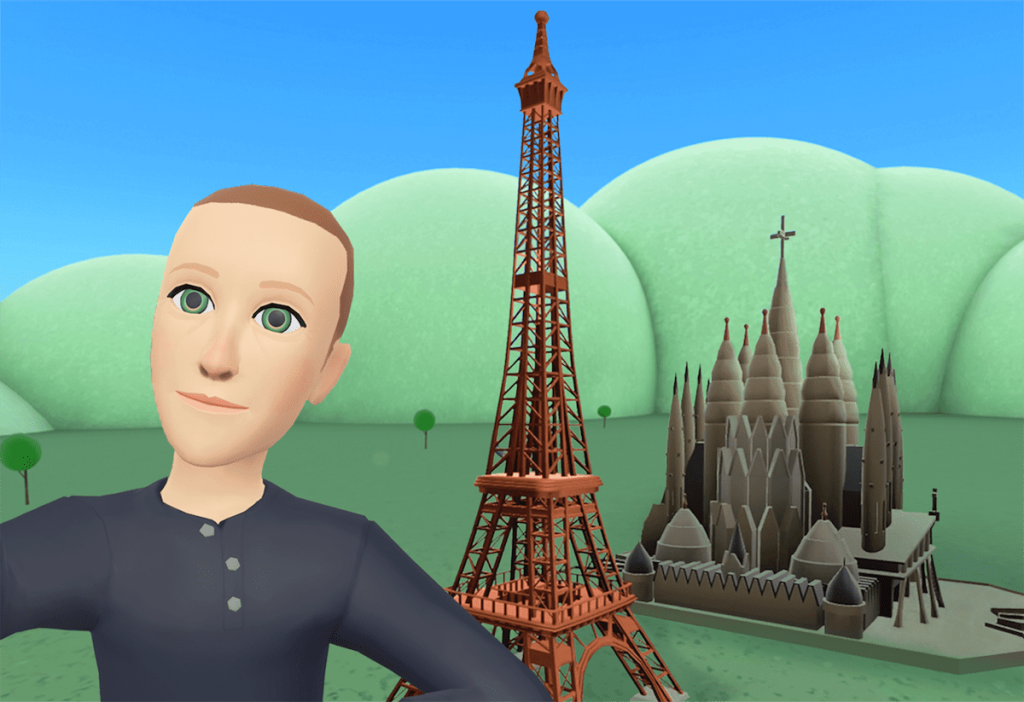The Death of the Metaverse?

RIP Metaverse. Not my headline, but the leading line of an article in Business Insider in May 2023. As I write this at the end of May, I can look back on a month of relentless articles informing us of the death of the metaverse. Requests for a moment’s silence for the death of the metaverse, to exclamations of the metaverse being no more. A vast change from 12 months ago, when Michael Saker, Jordan Frith and I were finishing a book on the metaverse in the wake of hype and hysteria akin to that which accompanied blockchain in the 2010s.
In lieu of a widely accepted definition, in From Microverse to Metaverse (2022: 4) we tried to base our conceptualization of the Metaverse in part on how Mark Zuckerberg saw the metaverse:
An all-encompassing virtual world that is persistent and combines virtual spaces for unrelated tasks into the same platform and enables people to perform many of the activities currently performed in the physical world in this interconnected virtual space.
As we interpreted it, Meta’s Metaverse is a place where someone could live primarily a digital life (a vision that of course ignores that one cannot leave their body behind (Hayles, 1999)). Consequently, unlike persistent virtual worlds like Second Life or Fortnite, a full Metaverse would be a world of unrelated activities where people could go to work, exercise, attend live concerts, and on and on using virtual reality (VR). One year on, this vision is apparently dead in the wake of multiple rounds of job losses and stock value declines. Is the ‘metaverse’, the concept of a virtual world that enables people to perform the functions of everyday life in digitally mediated space, dead? No. If Meta’s vision of the metaverse is dead, then we might well rejoice. Meta is a company implicated in numerous scandals and nefarious activities in pursuit of their business model. A business model which is predicated on the planetary-level harvesting and processing of personal data to reduce users down to data subjects through blanket surveillance (Zuboff, 2019). This business model incorporates VR and the Metaverse as an extension of the platform economics of the company (Srnicek, 2017), another way to gain data on users to be sold to advertisers. An intensification of the surveillance capitalism model, capturing biodata and real-time attentional information at a scale not yet possible.
One of the things that the myriad tech articles do not analyse in any depth is why this scant vision has failed. There is a very simple reason for this. Meta’s Metaverse is not a place anyone wants to spend any time inside, and there is nobody there to spend time with either. The scaling up of the Metaverse to the kind of environment that Zuckerberg sees as the future is not here now and will not be for a long time. The technological imaginary of the Metaverse is underpinned by the notion of presence. It is a space that supports continuity of identity, objects, history, payments, and achievements over time. It is an environment for socializing, working, playing, exercising, dating and all other interactions. In other words, the metaverse will be a continuous space to dwell in– a world of place attachment perhaps more attractive than the supposed “real”, but at least somewhere that I would want to spend time in and somewhere where all this is possible and more. The primary reason why Meta’s Metaverse is dead is because this is nowhere close to being built.
“If Mark Zuckerberg wants me to live in his metaverse, then the metaverse will have to let me live in a manner where I can have an authentic sense of being.”
If Mark Zuckerberg wants me to live in his metaverse, then the metaverse will have to let me live in a manner where I can have an authentic sense of being. To understand what this looks like, we can turn to Martin Heidegger’s phenomenological account of dwelling and being-in-the-world from Being and Time (1927). The challenge for creating the metaverse is to create a world that I want to be in and spend a considerable amount of time in – to dwell in. Proper dwelling in the world, in a phenomenological sense, is critical to our understanding of being and other beings, and that dwelling itself is a relationship to other things. Our understanding of the fundamental questions of being is a function of dwelling in the world, but this dwelling needs to be understood in reference not only to things but also to how we stand in relation to other things. This derives from Heidegger’s notion of Dasein and taking things into ‘care’ as fundamental to the spatiality of being in a meaningful existential space or world. By taking things into care Dasein stands in relation to that thing and uses the thing in fulfilling a towards-which, and that is part of Dasein’s attunement as dwelling.
In the context of digital worlds or the metaverse, it is the manner of orienting and locating oneself in a digital world that is understood as place that will be part of Dasein’s attunement or dwelling in place, and as such there will be practices of use that are conducive towards dwelling. Dasein’s understanding of the world (which it is thrown into and necessarily is being-in) through taking objects into care (Sorge) and being involved with the world through engagement with equipment (Concern or Besorge) is critical to understanding how Dasein makes sense of place. The kind of understanding of space is an existential nearness or distance to place, is dependent upon the bringing things into care that is realised as a situateness or attunement to things in the world. In essence, the metaverse will need to be a place where the possibility of bringing things into care is possible and will be done.
As Dasein, we always comport ourselves towards this place called the world; always striving to understand meaning and act accordingly (Dreyfus 1990: 99). The world is then a referential whole, and we understand entities through this referential whole and the references between entities, not through the intentional study of individual actors or objects in the world (Dreyfus 1990:103). While the universe can be described using the term space (and therefore linked to the material extension of Cartesian dualism) the world for Dasein is a place; somewhere that Dasein resides and lives. Place is not an objective, spatial, geometric phenomenon like the Cartesian explanation – places are existential locales (Blattner 2006: 75), or worlds. Familiarity with such places is a sense of nearness or distance, but this is an existential rather than geometric distance. From Heidegger’s phenomenological perspective, we are not located in space-time. Instead, we are always somewhere more or less familiar. From this perspective, things did look promising for Zuck’s metaverse. We could be familiar in a computer-generated world, given the time spent there but also what we do there. The metaverse can easily be closer than the house next door, just as a digital world can be closer than an unfamiliar part of our hometown. I, for example, spend more time in GTA Online than in my office and because of that I am more familiar with San Andreas than some parts of Swansea University (just kidding, boss).

My familiarity with the world of GTA Online comes from my activity there; I do things. I build the world, it is not just given to me. This is the key to the failure of Meta’s Metaverse, the reason why it is an existential desert. There is nobody there because we cannot do anything meaningful there. There is nobody there, nothing to build and nothing to do. I do not feel at home there. I don’t want to be there because it is boring. Frankly, there is nobody in this world, and no other entities that comport me towards Horizons or any other Meta spaces which will make me want to stay.
Fundamentally, the world made by Meta is not really a world, but a spatial container for a poorly-realised vision that cannot yet be done.
The death of the Metaverse in the hands of a company that established and maintained the surveillance capitalism model of profiting from users’ data (Vaidhyanathan, 2018) is no tragedy. In truth, the Metaverse is not here. It is years away from being close to the kind of existential place we can dwell. The technology, the interfaces, the ability to create and change the virtual world that would allow us to dwell are not yet with us. The overreliance on VR in Meta’s vision now looks especially simplistic, with the Quest 3 and Apple’s Vision Pro being more mixed reality focused devices. The future of the metaverse is not yet written and is not likely to be defined by Meta’s early play for dominance of the post-mobile internet. Whatever happens, we will have to do things – we will have to care for objects and others in order to care about the place. That sounds more akin to a mixed reality space than a purely VR based artificial environment Until that happens, there will be no major scale metaverse.
References
Blattner, W. (2006). Heidegger’s Being and Time: A Reader’s Guide. A&C Black.
Dreyfus, H. L. (1990). Being-in-the-world: A commentary on Heidegger’s Being and Time, Division I. MIT Press.
Evans, L., Frith, J., & Saker, M. (2022). From Microverse to Metaverse: Modelling the Future through Today’s Virtual Worlds. Emerald Group Publishing.
Hayles, N. K. (1999). How We Became Posthuman: Virtual Bodies in Cybernetics, Literature, and Informatics. University of Chicago Press.
Heidegger, M. (1962). Being and Time. Translated by Macquarrie, J. & Robinson, E. SCM Press.
Srnicek, N. (2017). Platform capitalism. John Wiley & Sons.
Vaidhyanathan, S. (2018). Antisocial Media: How Facebook Disconnects Us and Undermines Democracy. Oxford University Press.
Zuboff, S. (2019). The Age of Surveillance Capitalism: The Fight for a Human Future at the New Frontier of Power. Profile Books.
Recommended citation
Evans, L. (June, 2023) The Death of the Metaverse?. Critical Augmented and Virtual Reality Researchers Network (CAVRN). https://cavrn.org/the-death-of-the-metaverse/
This work is licensed under a Creative Commons Attribution-NonCommercial-NoDerivatives 4.0 International License.
